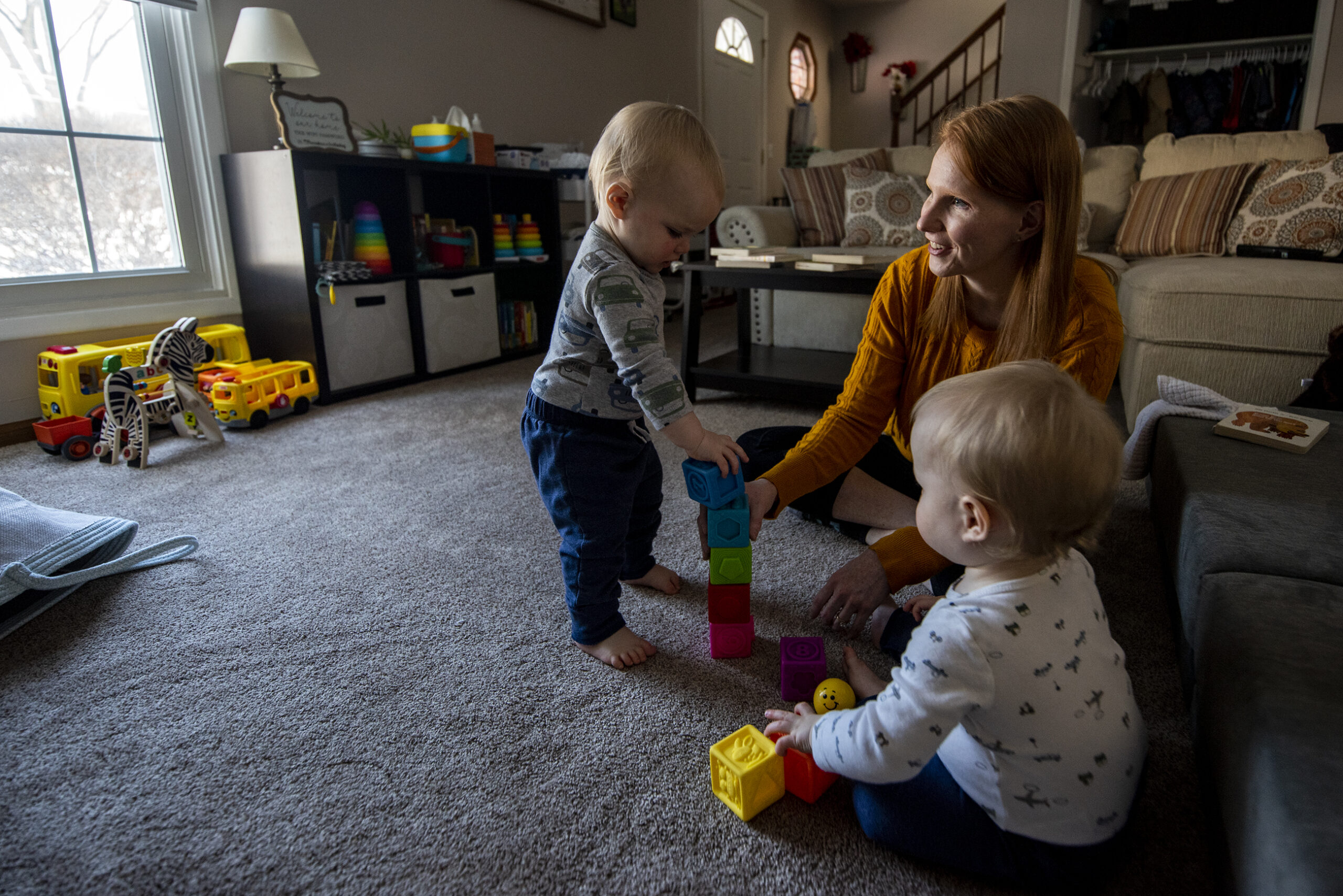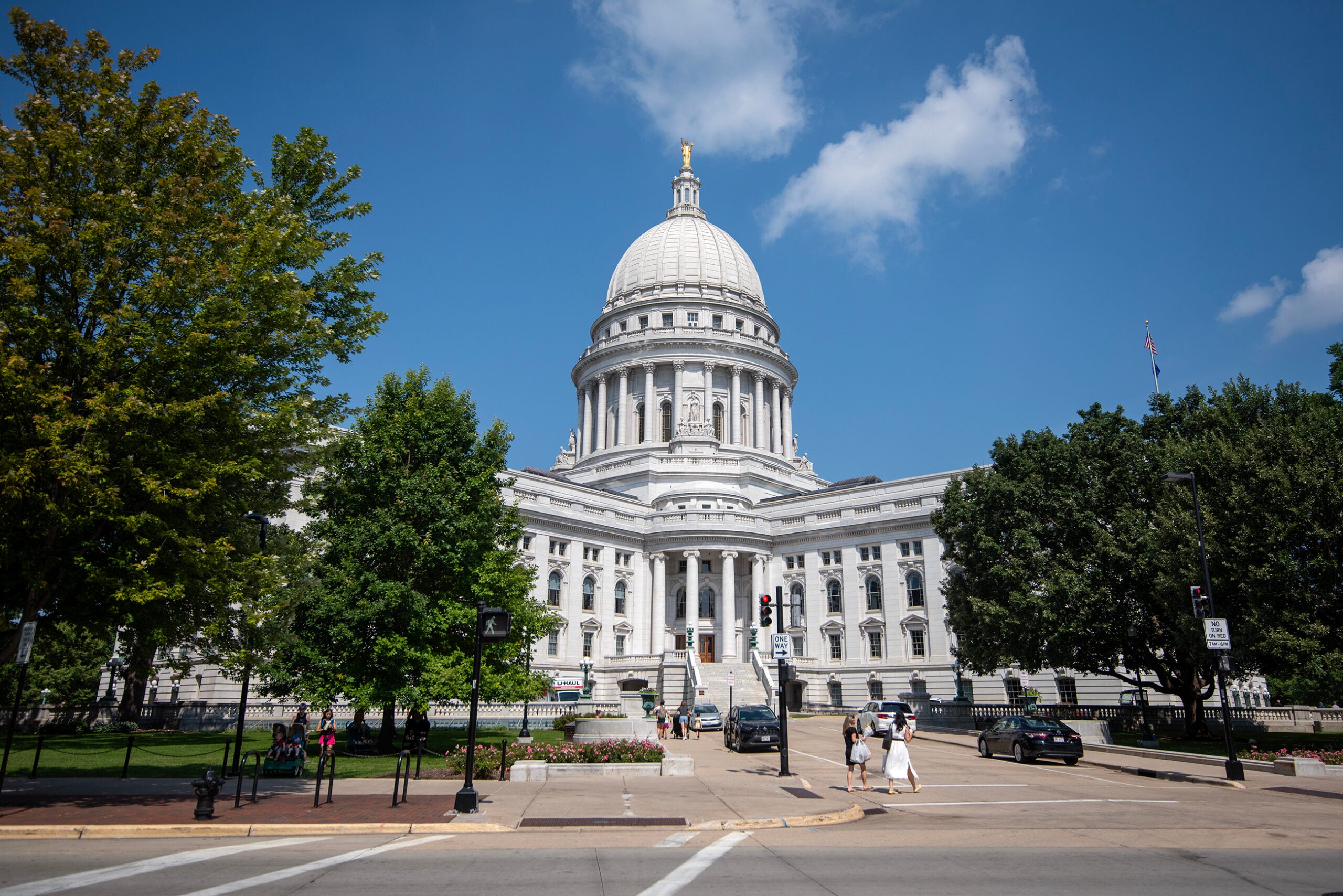Democratic lawmakers are renewing their push to create paid family and medical leave in Wisconsin.
A bill unveiled Wednesday would allow workers who elect to contribute a portion of their wages to the program to claim up to 14 paid weeks each year of combined family and medical leave.
Current Wisconsin law mandates that workers get at least two weeks of unpaid leave if they’re seriously ill or need to care for a seriously ill family member. That law, which only applies to businesses with at least 50 employees, also requires at least six weeks of unpaid leave for the birth or adoption of a child.
News with a little more humanity
WPR’s “Wisconsin Today” newsletter keeps you connected to the state you love without feeling overwhelmed. No paywall. No agenda. No corporate filter.
Under federal law, eligible workers get at least 12 weeks of unpaid leave for situations including caring for a newborn and dealing with serious illness.
But Rep. Francesca Hong, D-Madison, says unpaid leave isn’t enough.
“No one should ever have to choose between care for themselves or a loved one and a paycheck,” said Hong during a news conference unveiling the plan at the state Capitol.
Republican lawmakers have previously rejected similar plans from Democratic Gov. Evers, which would have used state funding to bolster a 12-week paid family and medical leave program in Wisconsin.
The latest bill sponsored by Hong and other Democrats would transfer close to $259 million from Wisconsin’s general fund in the current two-year budget cycle to create a Family and Medical Leave Insurance Trust Fund.
Starting in 2026, the fund would pay out benefits to people dealing with major life events, such as serious illness or the birth, adoption or foster placement of a child.
Businesses also would be required to contribute to the fund. Those with more than 50 employees would need to chip in with at least half of a worker’s contribution. For smaller businesses, Wisconsin’s Department of Workforce Development would create a tiered system to determine employer contributions, according to the bill.
Sen. LaTonya Johnson, D-Milwaukee, says she wishes she had access to paid leave 26 years ago when she had to return to work two days after giving birth to her premature daughter.
“She was only 6 pounds, 3 ounces,” said Johnson, another sponsor of the plan. “Can you imagine the difficulty of already having to leave your baby in a (Neonatal Intensive Care) ward, but then having to go back to work? That’s a serious strain that no mother should have to endure. But, every single day, moms around this state make the difficult choice of paying their bills or doing what’s right for their child.”
Along with establishing state-subsidized paid leave in Wisconsin, the bill would expand the list of situations in which someone could claim medical or family leave.
That list would include leave taken to get services or deal with legal proceedings if the employee or employee’s family member is a victim of sexual assault, domestic violence or stalking.
Thirteen states, including neighboring Minnesota, have enacted mandatory paid family leave systems, according to the Washington, D.C.-based Bipartisan Policy Center.
Wisconsin Public Radio, © Copyright 2025, Board of Regents of the University of Wisconsin System and Wisconsin Educational Communications Board.







